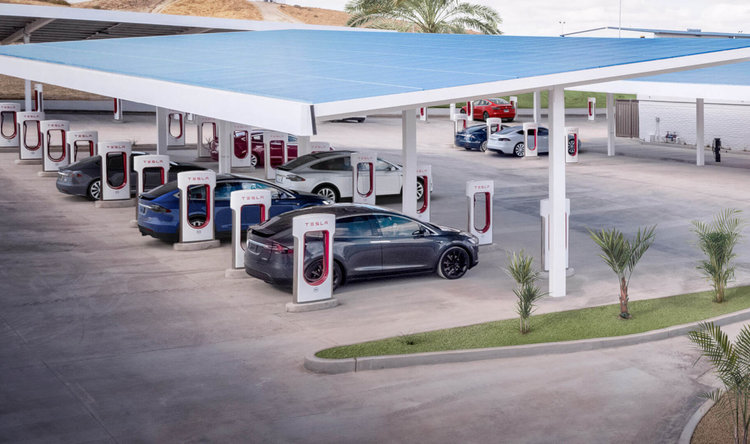How Can Malaysia Adapt for EV Adoption?
(Photo Credit: Design News)
The world is progressing towards the next generation of automobiles, with brands producing EV models. How can Malaysia gear up for EV adoption?
Just across the southern border, the Singapore government announced their 'Green Plan 2030' in the parliament early this year. They are already looking into increasing the number of EV charging points and lowering the Additional Registration Fee (ARF) to zero for new electric cars from Jan 2022 to Dec 2023.
Those are excellent examples for Malaysia to follow and promote EV adoption, but are we ready yet? Well, we've identified three issues that our Malaysian government should tackle to enhance our EV developments.
1) Lessen production for petrol-powered
 (Photo Credit: Asia Nikkei)
(Photo Credit: Asia Nikkei)
The automotive industry in Malaysia has improved over the years; we have 27 vehicle manufacturers producing passenger cars, commercial vehicles and two-wheelers. According to a study conducted in 2019, it is an industry housing 709,457 workers. It contributes RM40 billion to our country's Gross Domestic Product (GDP) growth.
Despite advancements in technology, most of these manufacturers are shifting away from Internal Combustion Engine (ICE) cars. Some are delaying their production, which will only turn off foreign investors' EV plans.
For example, carmakers who have already invested in Malaysia are now criticising the lack of progress. Mercedes-Benz Malaysia said that the firm is committed to its EV strategy but will require a more defined EV road map produced by the local government.
VinFast, a Vietnam electric automotive brand, plans to produce three new electric SUV for their local market this year. Perhaps our local car brands like Proton and Perodua can start producing EV variant units for our market.
Find the true value of your car here
2) Incentives for EV owners
 (Photo Credit: WIRED)
(Photo Credit: WIRED)
According to a survey conducted by Rakuten Insight in 2019, respondents stated that tax rebates and adding more charging stations nearby are factors that would encourage Malaysians to switch to an EV.
The fully imported Tesla Model S costs RM650,000, while similar 4 Door luxury sedans will cost RM320,000 to RM370,000 on average. Thus, making fully imported EVs impossible and unrealistic for Malaysians to own. Foreign EVs should not be taxed as heavily as petrol-powered cars as it would deter car owners from purchasing them.
The Malaysian government can also reference Norway's idea for promoting EV; owners will enjoy a 90% discount on road tax, which resulted in a surge in EVs purchases since 2020.
3) Improve EV infrastructure and developments
 (Photo Credit: Electrive)
(Photo Credit: Electrive)
The National Automotive Policy 2020 (NAP2020) didn't lay out proper EV incentives and infrastructure plans. The objectives were broad; for example, the expansion of Mobility-as-a-Service (MaaS) sector, development of a Next Generation Vehicle (NxGV) technology ecosystem and reducing carbon emissions.
They included seven roadmaps and blueprints, as well as 17 targets in their ten-year plan. The report also highlighted that Malaysia needs to catch up with its ASEAN peers, such as Thailand, Indonesia and Singapore, which have already attracted foreign investors.
Construction of the Hyundai Motor Group Innovation Center in Singapore (HMGICS) will complete by the end of 2022; and the small-scale facility aims to produce 30,000 EVs per year.
Hyundai will also be moving its Asia Pacific headquarters from Kuala Lumpur to Indonesia for EV production. Besides that, Toyota Motor Corp has invested US$2 billion (about RM8 billion) to develop EVs in Indonesia from 2019 until 2023.
Pioneer brands in the EV industry have also set their sights on Thailand. The country's Board of Investment (BOI) has approved investment applications from BMW, Mercedes-Benz, Toyota, Honda, and Nissan.
Under the National Electric Mobility Blueprint, Malaysia aspires to have 125,000 EV charging stations by 2030. Malaysia is estimated to have about 500 public chargers, so there is a long way to go before the government meets their target.
To sum up, the government can start finding ways with relevant stakeholders to improve EV infrastructure and proper strategies to boost EV adoption in Malaysia.
Share with us your ideas if there are other ways that Malaysia can explore to promote EVs in our country.
I want to find the highest selling price for my car within 24 hours!
Read more: Touch ’n Go RFID Tag: Where to Buy and How to Install?

